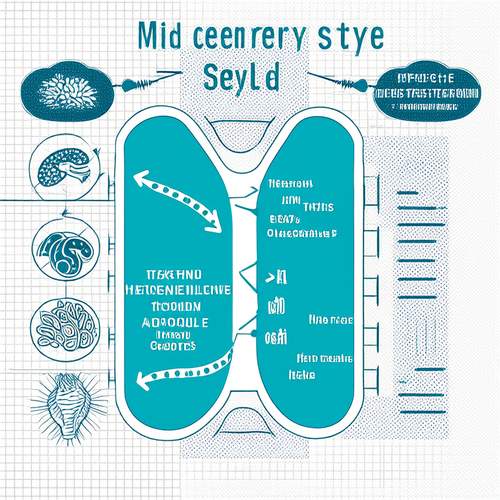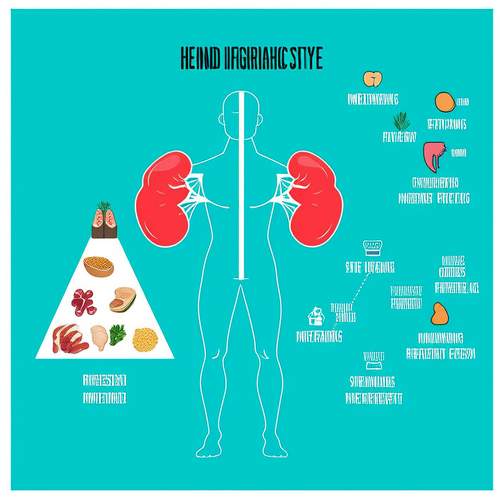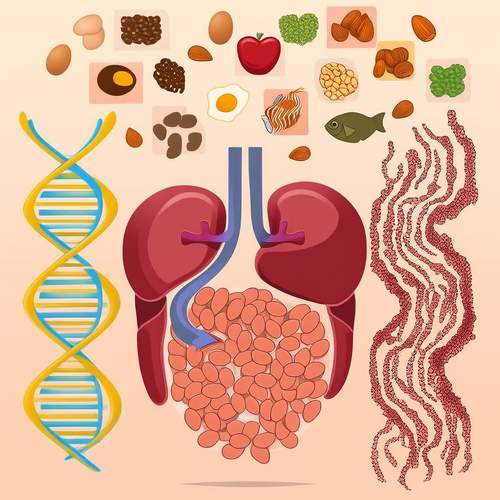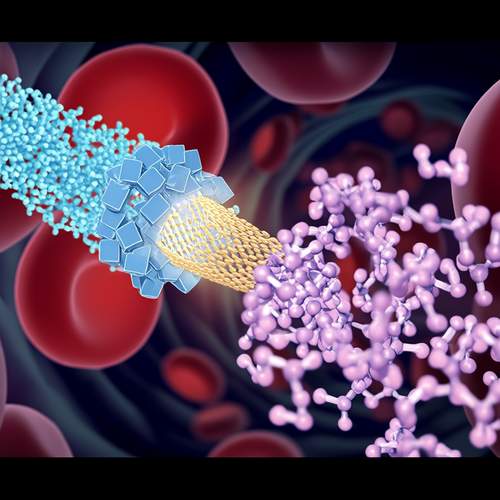The quest for longevity has led scientists and health enthusiasts alike to explore the fascinating connection between diet and cellular aging. At the heart of this exploration lies the telomere—a tiny but critical component of our DNA that acts as a biological clock for our cells. Emerging research suggests that certain anti-aging foods may play a pivotal role in preserving telomere length, effectively slowing down the aging process at its most fundamental level.
Telomeres are protective caps at the ends of chromosomes, often compared to the plastic tips on shoelaces that prevent fraying. Each time a cell divides, these telomeres shorten slightly. Over time, this shortening contributes to cellular aging and, eventually, cell death. The enzyme telomerase can help maintain or even lengthen telomeres, but its activity diminishes with age. This is where nutrition enters the picture. A growing body of evidence indicates that specific nutrients and dietary patterns can influence telomerase activity and telomere length, offering a tantalizing glimpse into how we might extend our healthspan.
The Mediterranean diet, rich in olive oil, nuts, fish, and fresh produce, has repeatedly shown promise in telomere research. Studies suggest that the anti-inflammatory and antioxidant properties of this diet may help protect telomeres from oxidative stress—one of the primary drivers of telomere shortening. Extra virgin olive oil, a staple of this diet, contains polyphenols like hydroxytyrosol that have been linked to reduced telomeric aging in cellular studies. Similarly, the omega-3 fatty acids abundant in fatty fish such as salmon and sardines appear to correlate with slower telomere shortening in observational studies of human populations.
Berries emerge as another telomere-friendly food group, bursting with compounds that combat cellular aging. Blueberries, blackberries, and raspberries are particularly rich in anthocyanins—potent antioxidants that may help preserve telomere length by neutralizing free radicals. Research has shown that individuals with higher fruit and vegetable consumption tend to have longer telomeres, with berries standing out for their exceptional flavonoid content. These findings align with broader observations about plant-based diets, which consistently associate with biomarkers of slower biological aging.
Green tea deserves special mention in any discussion about telomeres and nutrition. Its star compound, epigallocatechin gallate (EGCG), has demonstrated telomerase-activating properties in laboratory settings. Regular green tea consumption has been linked to longer telomeres in several population studies, possibly due to both its antioxidant effects and its ability to modulate cellular signaling pathways. The tea's L-theanine content may also help mitigate stress—a known accelerator of telomere shortening—through its calming effects on the nervous system.
Nuts and seeds offer a compelling combination of nutrients relevant to telomere maintenance. Walnuts, for instance, provide alpha-linolenic acid (a plant-based omega-3), along with antioxidants like ellagic acid that may protect DNA integrity. Sunflower seeds are rich in vitamin E, which has shown association with longer telomeres in aging research. Brazil nuts stand out for their selenium content—a mineral crucial for DNA repair and antioxidant defense systems. What makes these foods particularly interesting is their nutrient synergy; the combination of healthy fats, fiber, and micronutrients appears to create a more powerful effect than isolated supplements.
The relationship between gut health and telomeres represents an exciting frontier in nutritional science. Fermented foods like yogurt, kefir, and kimchi contain probiotics that may indirectly influence telomere length by reducing systemic inflammation—a known contributor to cellular aging. Preliminary research suggests that a healthy gut microbiome, supported by these probiotic-rich foods, might create an internal environment more conducive to telomere preservation. This connection underscores the complexity of aging biology, where dietary effects may manifest through multiple interconnected pathways.
While enthusiasm grows around these nutritional findings, experts caution against viewing any single food as a magic bullet for longevity. The protective effects on telomeres appear strongest with consistent, long-term dietary patterns rather than short-term interventions. Moreover, food's impact on telomeres represents just one piece of the longevity puzzle, interacting with other lifestyle factors like exercise, sleep, and stress management. As research continues to unravel the intricate dance between nutrition and cellular aging, one message becomes increasingly clear: our daily food choices may indeed influence how quickly our biological clocks tick.

By /May 21, 2025

By /May 21, 2025

By /May 21, 2025

By /May 21, 2025

By /May 21, 2025

By /May 21, 2025

By /May 21, 2025

By /May 21, 2025

By /May 21, 2025

By /May 21, 2025

By /May 21, 2025

By /May 21, 2025

By /May 21, 2025

By /May 21, 2025

By /May 21, 2025

By /May 21, 2025

By /May 21, 2025

By /May 21, 2025

By /May 21, 2025

By /May 21, 2025